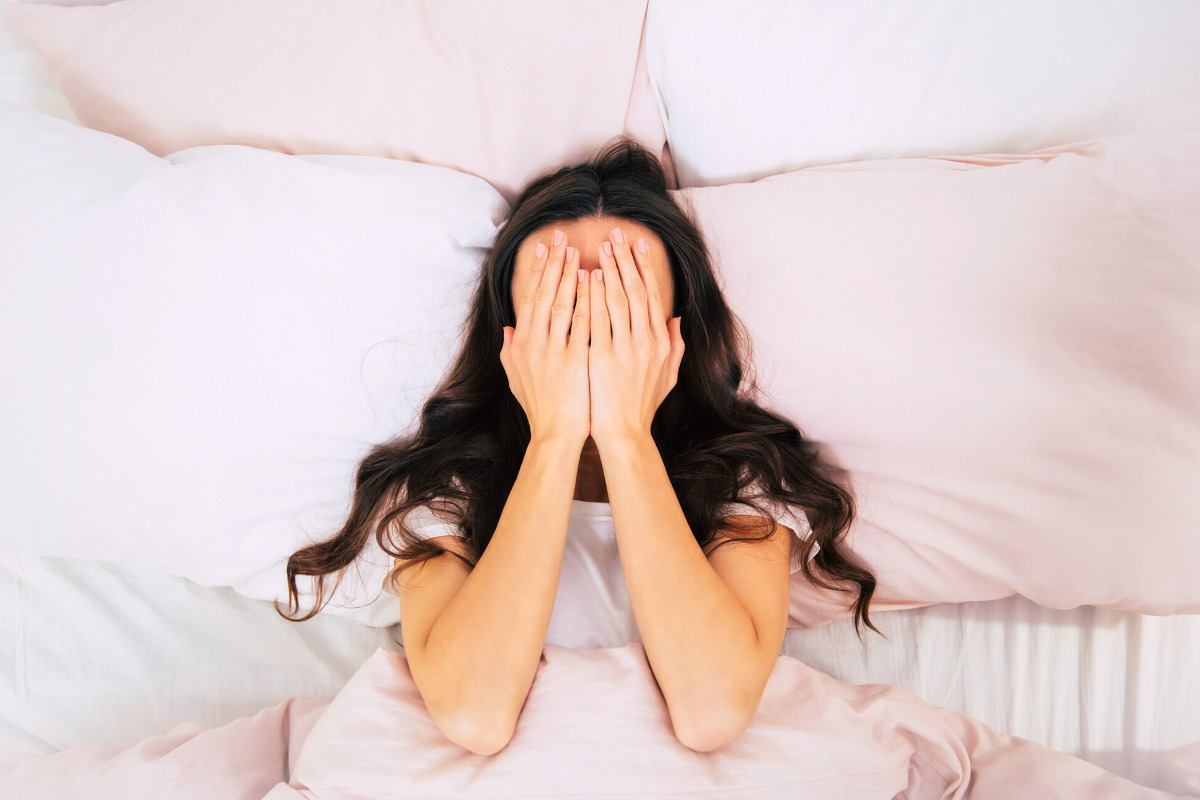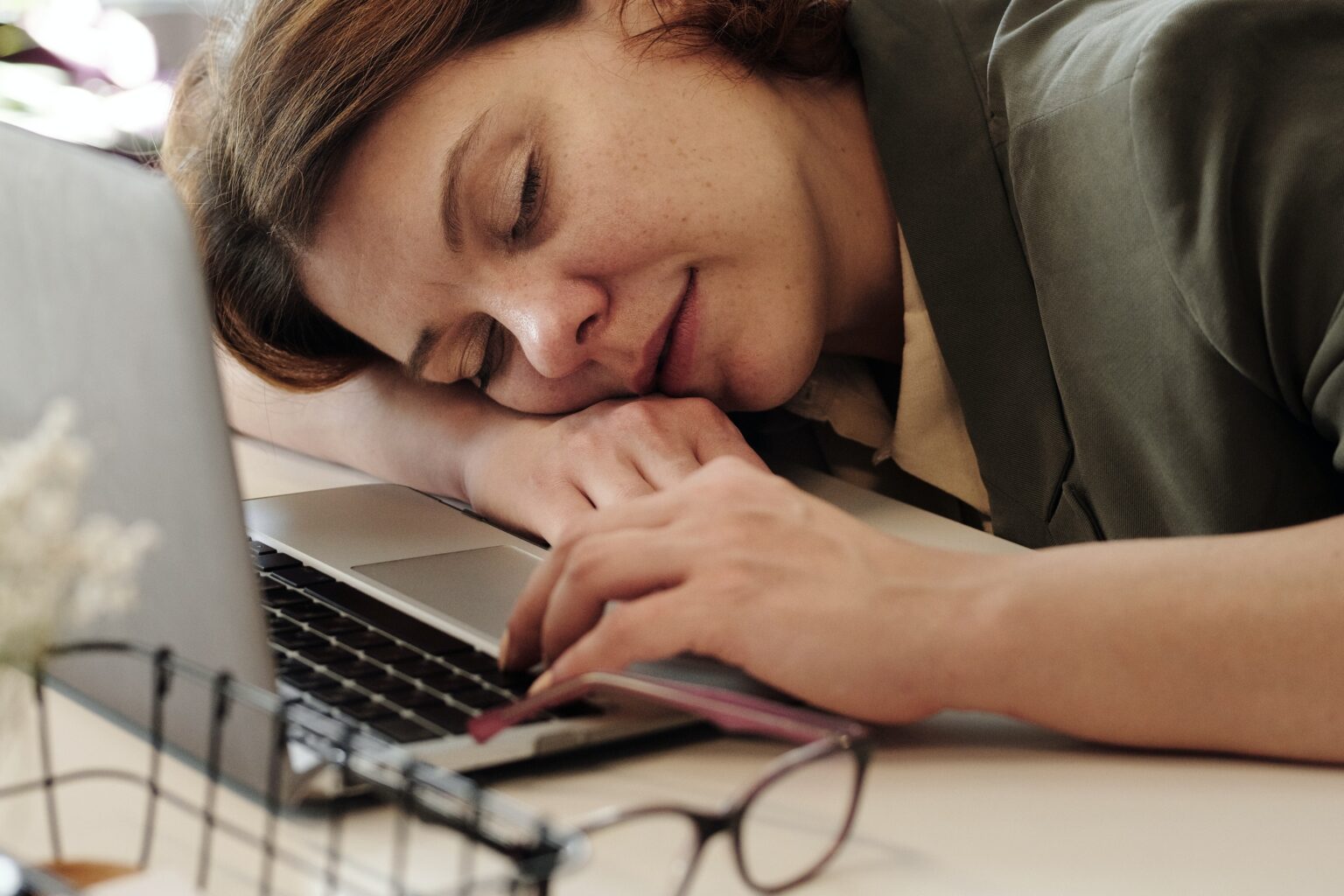How to Beat Menopause Fatigue

Intense fatigue is one of the common signs of perimenopause. You may come home from work and crash on the sofa. Naps might become your best friend to get through your day.
Overwhelming fatigue can quickly sap the joy out of life, but there are ways to get relief and reclaim your vital energy. Let’s look at some causes and treatments of menopause fatigue.
Understanding Menopause Fatigue
Menopause fatigue ranges in severity and can begin in perimenopause and last into postmenopause. Research shows that over eighty-five percent of people in menopause experience a significant change in their energy levels.
Causes of Menopause Fatigue
The drop in energy during the menopause transition is due to multiple reasons. The first and most important contributor is decreasing estrogen, which can be directly linked to physical fatigue and reduced stamina. However, low estrogen triggers other changes in the body that indirectly contribute to menopause fatigue.
Sleep Disturbances & Insomnia
Hot flashes and night sweats during the menopause transition interfere with a restful night’s sleep. Low estrogen levels can also worsen restless leg syndrome and sleep apnea, further disturbing your rest and lowering your sleep quality.
The hormonal changes of menopause can also cause or worsen insomnia, defined as chronic disturbance in sleep that affects your functioning.
Stress, Depression & Anxiety
Many women experience increased stress, anxiety, and depression in midlife. Stress alone can increase feelings of fatigue. Mood changes like anxiety and depression often interfere with sleep, which, in turn, worsens anxiety and depression. The cycle can be exhausting, but addressing sleep and mood together can help you regain control over your rest.
Lifestyle
While it’s hard to find the motivation to exercise when you’re tired, being sedentary is known to increase fatigue further.
Your nutrition and healthy food habits can play a significant role in your energy levels. Feeling tired can make you more likely to overeat or reach for less healthy choices to give you a fast and convenient energy boost. For example, it might feel easier to grab fast food than cook a healthy meal when you feel tired. Calories from sweets, processed food, and fast food don’t provide the nutrients the body needs for optimal brain function and can impact your mental health by causing blood sugar spikes and crashes.
Alcohol consumption can worsen fatigue by disrupting sleep patterns and preventing restorative sleep. Caffeine can also interrupt sleep, especially when consumed close to bedtime. Smoking has been shown to worsen hot flashes and night sweats, increasing your chance of having a lousy night’s sleep.
Strategies to Beat Menopause Fatigue
Take Control of Your Hot Flashes
If hot flashes and night sweats are major barriers to restful sleep, experts recommend addressing hot flash triggers and lifestyle contributors first. If you’re still struggling, discuss menopausal hormone therapy (MHT) and other non-hormonal prescription options with your provider. Cognitive behavioral therapy has shown excellent results in improving insomnia.
Make Energy-Building Lifestyle Changes
- Eat regular, high-quality meals. Research shows that eating a healthy, well-rounded, nutrient-dense diet can improve fatigue. Resist the urge to eat sweets and processed and junk food.
- Move your body as often as you can. Regular exercise improves fatigue and can also significantly improve sleep quality. If exercise seems overwhelming in your fatigued state, start with just 10 minutes of walking, and you may find yourself doubling or even tripling that time. An effective strategy is asking a partner or friend to help get you moving with regular exercise dates.
Get More ZZZ’s
Sleep experts universally recommend building helpful habits called sleep hygiene as a first step toward getting more and better sleep, and it can make a big difference. Important sleep hygiene practices include going to bed at the same time every night and avoiding caffeine, alcohol, and nicotine before bed. Don’t forget to sleep in a dark, cool room, and turn off all screens at least an hour before bed.
Alternative Therapies
Several alternative options complement the tips shared above.
- Melatonin – Melatonin is a hormone produced in the body that signals your brain to wind down to sleep. Melatonin supplements are effective at helping many people fall asleep faster and sleep longer.
- Valerian Root and Lemon Balm – These herbal supplements have been shown to reduce the symptoms of sleep disorders in menopause.
- Acupuncture – Acupuncture shows promise in alleviating fatigue by stimulating and regulating the autonomic nervous system.
- Yoga – Research shows that yoga can improve sleep quality in people with insomnia.
- Meditation and Mindfulness – Meditation may be effective in improving sleep quality, and mindfulness can lower stress perception and improve sleep quality for some people.
When to See Your Provider
Reach out to your care provider if persistent fatigue interferes with your quality of life. Increasingly, chronic diseases are being linked to persistent sleep disturbance. It’s important to rule out other potential causes of fatigue and to discuss the strategies available to you.
More Resources
Check out Midday Health or download the Midday menopause app from the App Store and get more science-backed support to get relief from menopause fatigue.
Jennifer Turkyilmaz, RN, BSN, is a medical writer who worked for many years in women’s health as a high-risk pregnancy nurse. She is also a newly menopausal woman who wishes she had known more about what to expect before it happened to her.
Sign up for more unique women’s health content
By submitting this form, you agree to the Lisa Health Privacy Policy and Terms of Use

